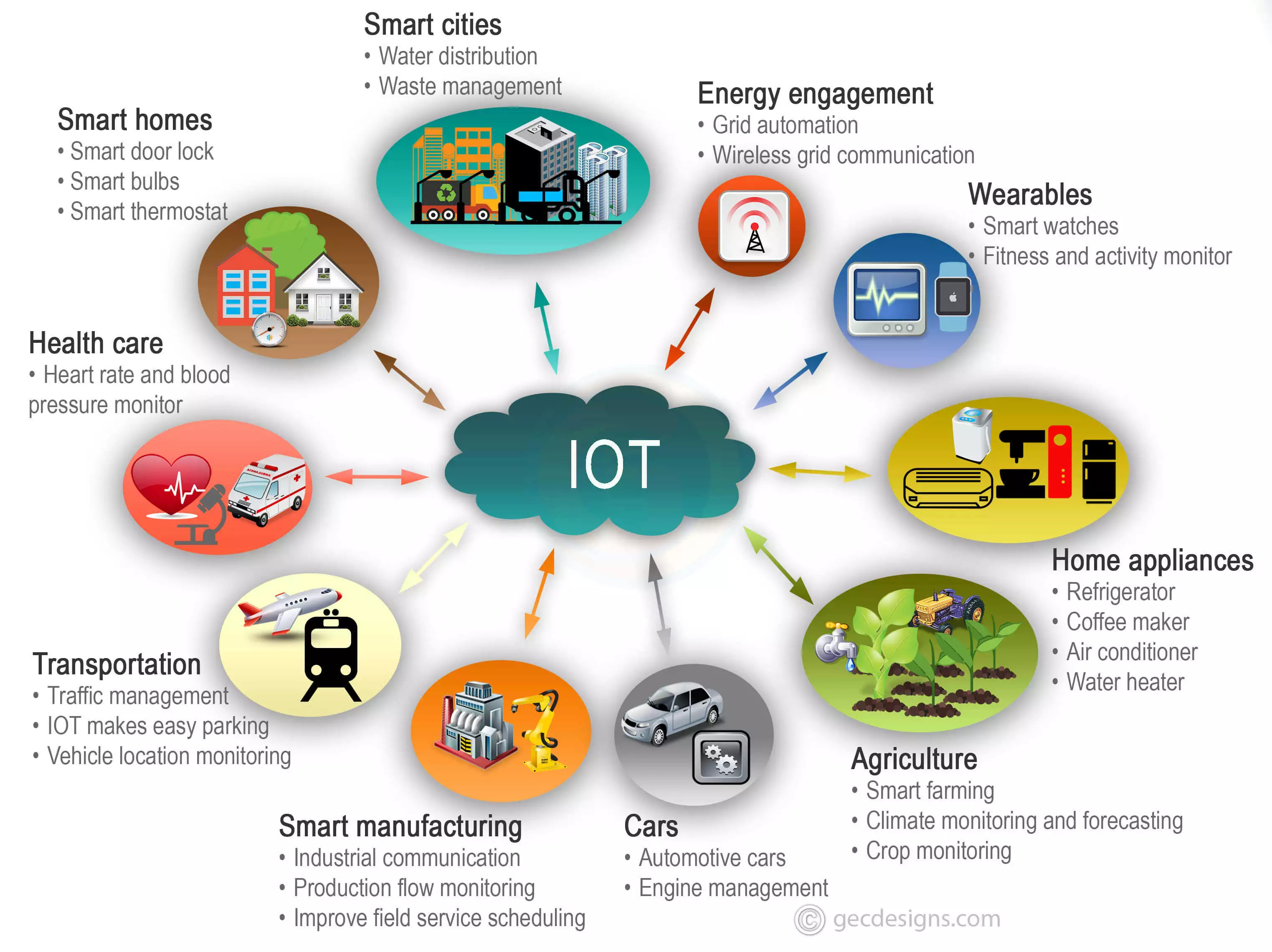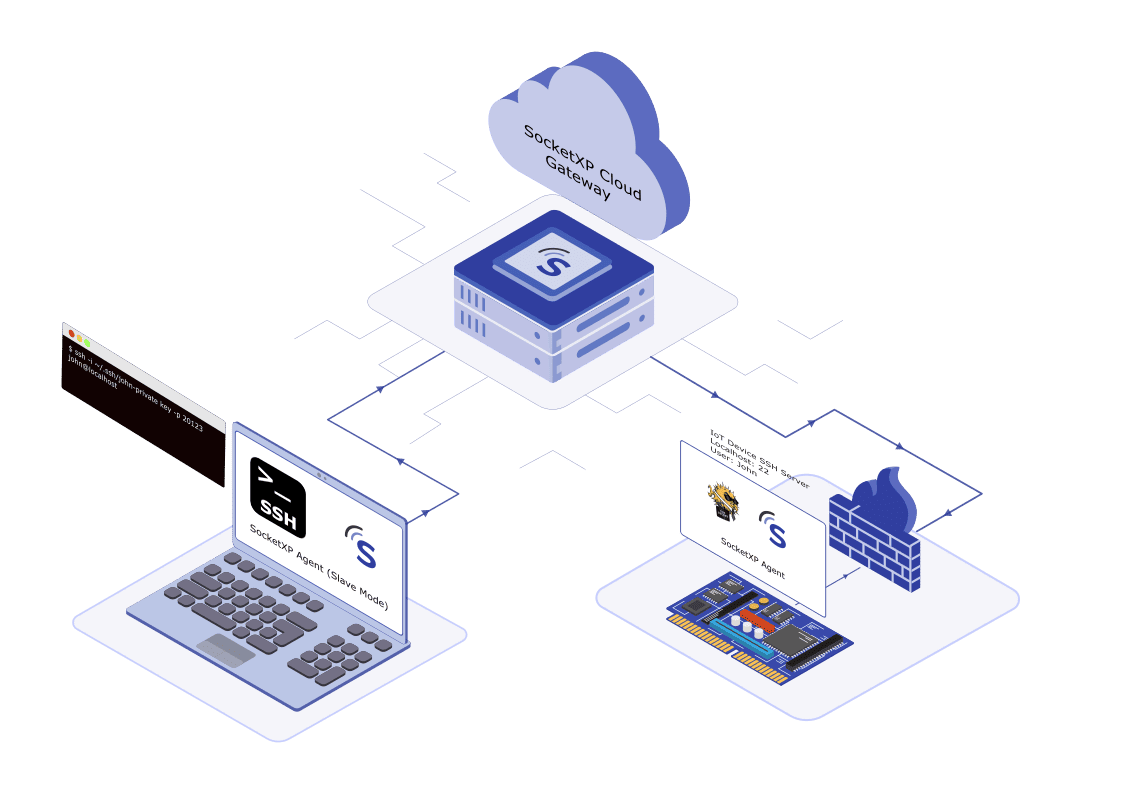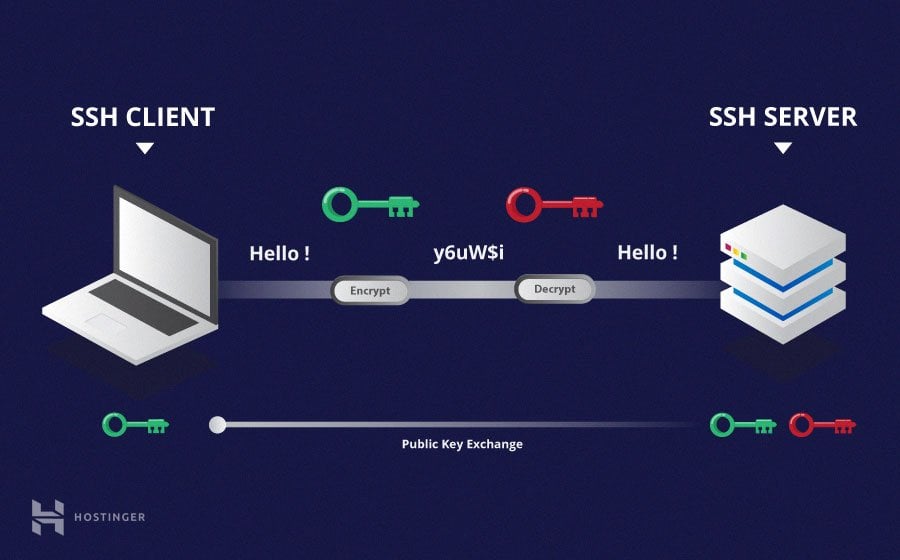In a world teeming with interconnected devices, have you ever stopped to consider the vulnerability of your IoT ecosystem? Securing SSH access for your IoT devices is no longer just a recommendation; it's an absolute necessity in the face of escalating cyber threats.
The Internet of Things (IoT) has undeniably revolutionized the way we interact with technology, permeating every facet of our lives from smart homes and wearable devices to industrial automation and critical infrastructure. This interconnectedness, however, also presents a significant challenge: securing remote access to these devices. With the proliferation of IoT devices, the attack surface for cybercriminals has expanded exponentially. Therefore, robust security measures are paramount to safeguard sensitive data and prevent unauthorized access. Secure Shell (SSH) emerges as a cornerstone in this security landscape, offering a reliable and encrypted channel for remote management and control.
| Category | Information |
|---|---|
| Concept | SSH in IoT |
| Definition | Secure Shell (SSH) provides encrypted communication channels for remotely accessing and managing IoT devices. |
| Importance | Crucial for secure remote access, data transfer, and configuration of IoT devices, especially Raspberry Pi. |
| Key Benefits | Enhances security, reduces downtime, enables remote troubleshooting, and improves IoT device management. |
| Protocols Used | SCP, SFTP |
| Functionalities | Secure remote access, file transfer, tunneling, port forwarding. |
| Use Cases | Accessing devices behind firewalls, remote configuration, secure data transmission, monitoring and control. |
| Solutions | RemoteIoT Web SSH, AWS IoT Secure Tunneling, OpenSSH. |
| Security Considerations | Firewall rules, secure tunneling, encryption, public/private key authentication. |
| Platforms Supported | Ubuntu, Raspberry Pi, and other Linux-based systems. |
| Open Source Software | OpenSSH |
| AWS Integration | AWS IoT Secure Tunneling |
| Web Access | Web-based SSH clients |
| Device Access | Gain instant, secure access to IoT devices using SSH, VNC, RDP, and public web URLs. |
| Remote Access | Lets you stay in control, reduce downtime, and improve your IoT device management. |
| Remote Access Management | Simplifies remote device management |
| Challenges Addressed | Challenges of IoT Management |
| Solutions Provided | Secure Remote Access Solutions with SSH |
| Additional Features | Eliminates the need for installing additional software, making it easier to access IoT devices from any device with a web browser. Offers enhanced security features, ensuring that your data remains protected while in transit. |
| Reference Website | AWS IoT Secure Tunneling |
RemoteIoT web SSH solutions have emerged as a pivotal platform for engineers, administrators, and developers, offering a secure and reliable means to monitor and control IoT devices without the constraints of physical proximity. These solutions bridge the gap between traditional SSH protocols and web-based interfaces, providing a seamless and user-friendly experience. By eliminating the need for installing additional software, they empower users to access IoT devices from any device equipped with a web browser. Furthermore, the enhanced security features inherent in these solutions ensure that data remains protected during transmission, mitigating the risk of interception or manipulation.
- Subhashree Sahu Mms Scandal The Truth Controversy Unveiled
- Subhashree Sahu Viral Video The Truth Privacy Matters Now
The fundamental principles underpinning RemoteIoT web SSH revolve around secure communication, authentication, and authorization. SSH provides a secure channel for accessing a remote device, encrypting all data transmitted between the client and the server. This encryption safeguards sensitive information such as login credentials, configuration settings, and sensor data from eavesdropping and tampering. Moreover, robust authentication mechanisms, such as public-key cryptography, verify the identity of both the client and the server, preventing unauthorized access and man-in-the-middle attacks. Authorization protocols, on the other hand, determine the level of access granted to each user, ensuring that only authorized individuals can perform specific actions on the IoT device.
The importance of RemoteIoT web SSH in modern networking cannot be overstated. As IoT deployments become increasingly complex and distributed, the ability to remotely manage and troubleshoot devices becomes critical for maintaining operational efficiency and minimizing downtime. RemoteIoT web SSH enables administrators to perform tasks such as software updates, configuration changes, and security patching from anywhere in the world, without the need for costly and time-consuming on-site visits. This agility is particularly valuable in scenarios where IoT devices are deployed in remote or inaccessible locations, such as oil rigs, wind farms, or smart city infrastructure.
Furthermore, RemoteIoT web SSH addresses the inherent challenges of IoT management, particularly in environments where devices are deployed behind firewalls or network address translation (NAT) devices. Firewalls, while essential for network security, can often impede remote access to IoT devices by blocking incoming connections. RemoteIoT web SSH overcomes this obstacle by establishing secure tunnels through firewalls, allowing administrators to connect to devices without compromising network security. Similarly, NAT devices, which translate private IP addresses to public IP addresses, can complicate remote access by making it difficult to identify and connect to specific devices. RemoteIoT web SSH solutions typically employ techniques such as port forwarding and dynamic DNS to resolve these issues, ensuring seamless connectivity regardless of network configuration.
- Movierulz 2025 Risks News Safe Alternatives Guide
- Why Amy Ryans Holly Flax Was The Offices Heart Soul
AWS IoT Secure Tunneling offers a compelling alternative for establishing bidirectional communication with remote devices over a secure connection managed by AWS IoT. This service eliminates the need for updating existing inbound firewall rules, preserving the security level provided by those rules. Secure tunneling leverages the security and scalability of the AWS cloud to provide a reliable and cost-effective solution for remote access. It is particularly well-suited for organizations that have already adopted AWS IoT and are looking for a tightly integrated solution for secure remote management.
OpenSSH, a free and open-source implementation of the SSH protocol, provides another viable option for securing remote access to IoT devices. OpenSSH offers a comprehensive suite of tools for encrypting network traffic, authenticating users, and managing SSH keys. It is widely supported across various operating systems, including Linux, macOS, and Windows, making it a versatile choice for diverse IoT deployments. OpenSSH can be configured to use public-key authentication, which eliminates the need for passwords and provides a more secure means of verifying user identities. Additionally, OpenSSH supports features such as port forwarding, which allows administrators to securely tunnel traffic through firewalls and NAT devices.
For users whose devices are not based on Ubuntu Linux and who wish to learn how to install and configure SSH servers, SSH clients, and SSH public/private keys for remote SSH access, there are numerous online resources and tutorials available. These resources provide step-by-step instructions on how to set up SSH on various operating systems and devices. It is important to follow best practices for SSH security, such as using strong passwords, disabling password authentication, and regularly updating SSH software.
The IoT is undeniably transforming industries by connecting devices in unprecedented ways. One of the most significant advantages of this connectivity is the ability for users to control and monitor their gadgets from anywhere in the world. This remote access empowers users to stay in control, reduce downtime, and improve their IoT device management by eliminating the need for physical proximity. Service partners, who often require access to devices installed in remote locations, also benefit greatly from secure remote access solutions.
Secure remote access, as the name suggests, involves leveraging software and applications to provide protected connectivity and communication with wireless devices, servers, and networks, regardless of the user's location. However, the true essence of secure remote access lies in its ability to mitigate the risks associated with unauthorized access and data breaches. By implementing robust security measures, such as encryption, authentication, and access control, organizations can ensure that only authorized individuals can access sensitive data and resources.
The proliferation of IoT devices has made remote device management significantly easier. Consider the Raspberry Pi, a compact and versatile computer that can be accessed by almost anyone. One of the simplest ways to grant remote access to a Raspberry Pi is to utilize SSH, which provides a secure and encrypted connection. This allows users to perform updates, monitor performance, and troubleshoot issues without being physically present.
To connect a device to the SocketXP cloud gateway, users can employ the following command, utilizing their authentication token. SocketXP provides a platform for simplifying SSH over the internet. SSH is a dependable method for securely controlling IoT devices like the Raspberry Pi.
With the increasing expansion of the IoT, the use of SSH over the internet for remote access has become essential for managing devices like the Raspberry Pi. This setup enables users to connect securely from any location, streamlining updates, performance monitoring, and troubleshooting. SSH is crucial for IoT remote access, and there are several remote access solutions available for IoT devices.
Accessing a Raspberry Pi with a web-based SSH client in a browser provides a convenient and accessible solution for remote management. The web console functions as a standard terminal emulator for the X Window System, allowing users to interact with the Raspberry Pi directly from their PC browser or mobile device.
Top 5 SSH Remote Access Solutions for IoT
How to Secure SSH Access for IoT
Consolidating secure remote access solutions with SSH is the need of the hour. Gain instant, secure access to your IoT devices using SSH, VNC, RDP, and public web URLs. As the Internet of Things (IoT) continues to evolve, secure remote access via SSH has become increasingly critical for effective device management.
- Jang Miran Park Taehwan Olympic Icons Paris 2024 Buzz
- Jiohotstar Your Guide To Movies Series More Watch Now


